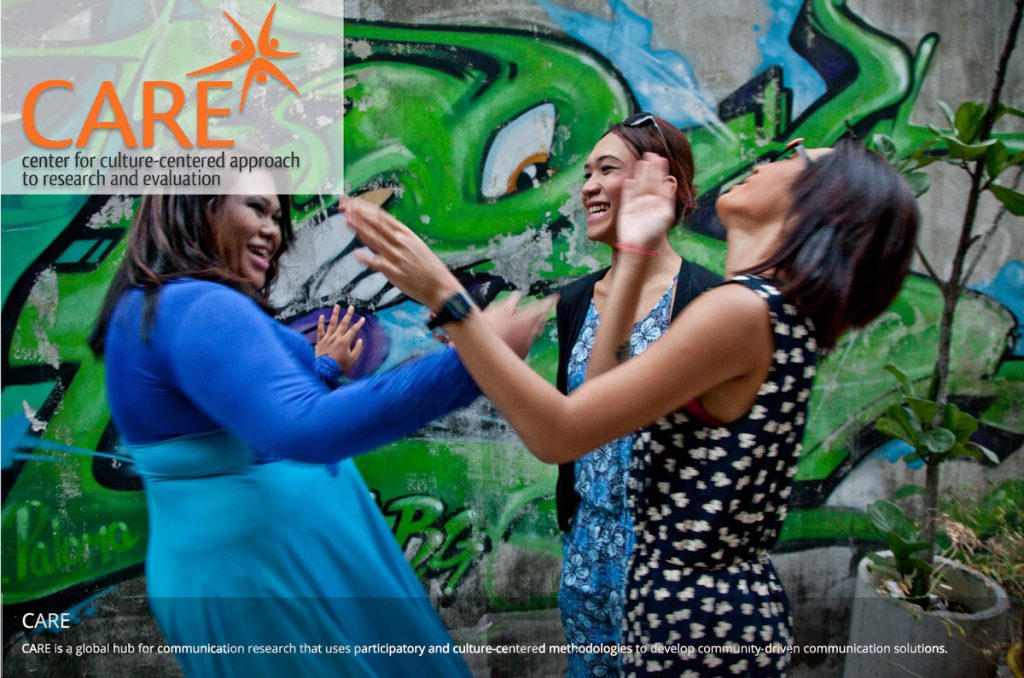
Starting June 13, 2018, the Center for Culture-Centered Approach to Research and Evaluation (CARE) moved to Massey University in New Zealand. Working across collaborations on the three campuses of Massey, CARE looks forward to extending its ongoing work on imagining health, wellbeing and social justice to the flows and movements across the Asia-Pacific. Particularly salient in the next phase of CARE is the exploration of the ways in which creating infrastructures for communication and voice at the margins in the global South offer discursive and material resources for disrupting the local-regional-global threats to human health, wellbeing, and ecosystems.
Theorizing local-global linkages
The ongoing work of CARE with migrant workers, indigenous communities, refugees, farmers, laborers, and communities living in poverty across Asia and the US will join in solidarity with upcoming projects at the Center that seek to theorize marginalization and social change in/from the Pacific. In this next stage of CARE, particularly salient will be the building of academic-activist collaborative research platforms that seek to intervene into the various contexts of local-regional-global marginalization to co-create anchors for local-global social justice. The Center’s objective of theorizing culturally situated communicative processes of structural transformation will seek new contextual anchors that support the development of globally relevant lessons for communication and social change.
Ongoing CARE Interventions in Asia and the U.S.
The various forms of community-grounded and community-led CARE interventions in Asia and the U.S. will continue to be sustained by our global networks of advisory group members, community activists, community peer leaders, community researchers, and community advocates. Community-wide meetings, workshops, and grassroots democracy initiatives will serve as the anchors for the various social justice research projects and advocacy interventions in the communities where CARE has been working over the last several years. Whereas many of these projects are over two decades old, others have been created over the past two-three years. The sustainability of these projects draws from the hard work, continued involvement, and strategies of creative resistance that are envisioned by community members. That human rights form the foundations of health is a theme that will continue to be put forth across these projects, with project advocacy and activist interventions seeking to build communicative infrastructures for the voices of the margins.
Activist-academia Research Platforms for Advocacy
With over 30 projects that span seven countries, in its next phase, the academic-activist-community platforms of CARE will serve as the bases for research platforms for advocacy in the Asia-pacific and globally. CARE’s innovations with activist-in-residence programs, activist-academic roundtables and workshops, and academia-activism dialogues serve as the bases for the next stage of activism-driven research platforms across the Asia and Pacific. Specifically drawing on our ongoing research on sex work and poverty, the Center will begin with building activist-academia research platforms in these two areas.
Looking forward
In upcoming projects, CARE will seek academic-activist-community partnerships that offer insights into the communicative processes of marginalization that threaten human health, the specific pathways through which communicative inequalities constitute health inequalities, and the role of communication as a transformative tool for addressing structural inequalities. The goal of theorizing communicative processes around marginalization is ultimately to contribute to activist practices that intervene into social injustices globally.
